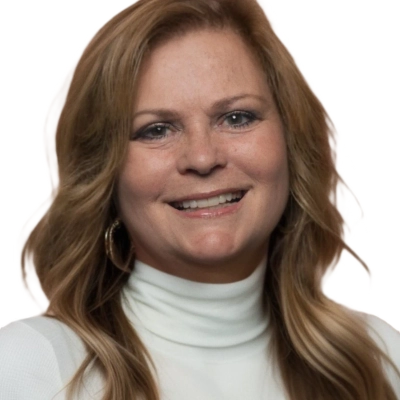11 Personal Development Goals that Helped Me Overcome Limiting Beliefs
Discover powerful personal development strategies that have helped countless individuals break free from their limiting beliefs. This article presents a collection of expert-backed goals, ranging from practicing tiny acts of bravery to embracing uncertainty as a catalyst for growth. By implementing these proven techniques, readers can unlock their potential, overcome challenges, and achieve remarkable personal and professional transformation.
- Practice Tiny Bravery to Overcome Perfectionism
- Determination Transforms Challenges into Opportunities
- Set Boundaries to Enhance Professional Respect
- Embrace Uncertainty as a Path to Growth
- Conquer Public Speaking Through Gradual Exposure
- Build Authentic Connections with Micro-Commitments
- Empower Others to Scale Your Business
- Speak Up Regularly to Build Confidence
- Use Proven Frameworks to Overcome Presentation Fears
- Transform Expertise into Compelling Content
- Embrace Discomfort for Personal Growth
Practice Tiny Bravery to Overcome Perfectionism
Here's a fear I never talked about publicly until recently: I used to be terrified of looking unpolished. Not unprepared. Unpolished. Like, I'd over-edit cold emails. I'd rehearse conversations in my head for hours. Even casual Slack messages would get reworded three times before sending. It wasn't perfectionism exactly—it was this low-key belief that if I wasn't articulate and clever 100% of the time, people would stop taking me seriously.
Eventually, it became clear this wasn't a quirk. It was a growth cap.
So I set a personal development goal that felt embarrassingly small: send one unedited message every day—typos, clunky phrasing, whatever. Just send it raw.
It was brutal at first. My brain was screaming: "You're the founder! You can't sound like you just woke up and typed with your elbows!" But the longer I did it, the more I realized... no one cared. In fact, people responded faster and more warmly when I stopped sounding like a polished press release.
That one tiny goal did something huge: it made me comfortable being seen in progress. That's changed everything—from how I lead, to how I pitch, to how I create. The signal-to-noise ratio got better because I stopped filtering for elegance and started filtering for clarity and intent.
If someone else is dealing with a similar fear, my advice is this: practice "tiny bravery." Don't set a big, sweeping confidence goal. Set a tiny one that feels slightly uncomfortable but highly repeatable. That's the habit that shifts identity.

Determination Transforms Challenges into Opportunities
My personal development goal was simple but powerful: Make it Happen. At one of the lowest points in my life, I was surrounded by doubt—both from others and from within. I had been told I wasn't good enough, smart enough, or capable of doing more. But deep down, I knew that staying stuck in that space wasn't an option. I made a decision to rise above my circumstances and prove—to myself most of all—that I was capable of creating something better.
With two young children at home, a husband who traveled constantly for work, and a mother-in-law in declining health under my care, I chose to return to school later in life. It wasn't easy, but I earned my AA, then my BS, and eventually a Master of Public Administration. It was during my time working on my BS that I realized how personal healthcare navigation was for me. I had lived the struggle—juggling caregiving, parenting, and trying to figure out complex healthcare systems on my own.
After my mother-in-law passed away and I completed my degree, I created a plan: learn everything I could about how the healthcare system truly works. I worked across different areas—as a case manager in a Medicaid long-term care diversion plan, a client services supervisor for a private duty care caregiver agency, a community liaison for business development of a Medicare home health agency, and ultimately, in professional care management and guardianship. Each role built the foundation for what I do now.
Today, I run my own business, using those years of experience, hard-earned certifications, and personal empathy to help families find clarity and peace of mind in the midst of healthcare chaos. I didn't come from privilege. I came from determination, intention, and a refusal to let someone else define my potential.
To anyone facing a similar challenge, here's my advice: Don't wait for perfect timing. Don't wait for permission. Set the goal, make the plan, and make it happen—especially when the odds are against you. Your circumstances do not define your future—your choices do.
Tara Bailey, MPA, CMC, BCPA, CDP, CSA, SHSS
Brevard Healthcare Navigation
Founder and CEO

Set Boundaries to Enhance Professional Respect
One goal that really shifted things for me was learning to say "no" without guilt. Early in my career, I thought saying yes to everything—every client request, every opportunity, every late-night call—was how you proved your worth. It wasn't. It led to burnout and some frustrating compromises, especially in the early days of building Spectup. I had this belief that if I wasn't constantly available, the whole thing would fall apart. Eventually, I realized it was a control issue masked as dedication. I started working on setting boundaries, even if it felt uncomfortable at first. The real surprise? Clients and partners respected me more for it. I wasn't trying to be everything to everyone—I was being intentional.
If you're in that same spot, afraid to disappoint or lose momentum, my advice is to test the waters with small "no's". You don't need to explain yourself to everyone. Just be clear, be kind, and remind yourself that protecting your time isn't selfish—it's smart. The work only gets better when you're not spread so thin.

Embrace Uncertainty as a Path to Growth
One of the most meaningful personal development goals I set for myself was learning to become comfortable with uncertainty — especially the kind that comes with building something from the ground up. Early in my entrepreneurial journey, I had this limiting belief that I always needed to have the full plan mapped out before taking action. I thought uncertainty was a sign of poor preparation, when in reality, it's just part of growth.
What helped me overcome that mindset was deliberately working on my ability to make decisions with incomplete information. Instead of getting stuck in analysis paralysis, I made it a goal to take small, calculated risks daily — whether that was launching a new product feature before it felt "perfect" or having a tough conversation without rehearsing every word. Over time, I realized that momentum often beats perfection, and confidence comes from action, not guarantees.
For anyone facing a similar challenge, my advice is simple: get comfortable being uncomfortable. You don't need to eliminate fear to move forward — you just need to practice making decisions despite it. Start small, reflect often, and remind yourself that uncertainty isn't your enemy — it's usually a sign you're on the edge of growth.
Conquer Public Speaking Through Gradual Exposure
A personal development goal that truly helped me was specifically tackling my fear of public speaking. For years, I believed I wasn't articulate enough under pressure, a significant limiting belief given my desire to share insights broadly. I set a goal to deliver a short presentation to a small, supportive group, then gradually increased the audience size and complexity of the topics.
My advice to someone facing a similar challenge? Start incredibly small. Don't aim for a TED Talk on day one. Identify the tiniest step that still feels like a stretch, whether it's speaking up in a team meeting or practicing in front of a mirror. What's more, focus on progress, not perfection; every small win builds momentum and chips away at that limiting belief. You've got this.

Build Authentic Connections with Micro-Commitments
I set a personal goal last year to book one "virtual coffee" each month with someone in my industry I'd never met—whether a podcast host, a fellow agency owner, or a journalist. I admitted to myself that I'd been avoiding outreach calls because I felt I had nothing valuable to offer. By treating each invite as a simple 20-minute chat—no pitch, no agenda—I gradually realized that sharing my own challenges and tight spots was just as useful to them as their advice was to me. After four months, those conversations led to two guest-post opportunities and a warm introduction to a prospective client.
My advice for anyone wrestling with "imposter syndrome" in networking is to break the ice with micro-commitments. Start by reaching out to just one person and frame it as mutual learning rather than a favor. Prepare two open-ended questions—like "What's one strategy that surprised you this year?"—so the exchange feels natural. Celebrate each small yes, and you'll find that the real value in these chats isn't in grand pitches but in the authentic connections you build along the way.

Empower Others to Scale Your Business
As the CEO of an explainer video company, one personal development goal that helped me overcome a limiting belief was learning to delegate effectively.
Early on, I believed that to maintain quality and consistency, I had to be involved in every detail—which led to burnout and bottlenecks. By focusing on building trust within my team and developing leadership systems, I learned that empowering others not only improved efficiency but also fostered creativity and ownership.
My advice to anyone facing a similar challenge is to shift your mindset from control to collaboration—surround yourself with capable people, invest in their growth, and let go of the need to do everything yourself. That's when real scale begins.

Speak Up Regularly to Build Confidence
One personal development goal that changed everything for me was learning to speak up in uncomfortable situations, especially with clients or authority figures. I used to avoid conflict, fearing I'd come across as difficult or get it wrong. However, the reality is that people often appreciate alternative perspectives and respect you more for speaking your mind, provided you do it in a respectful way.
To overcome my fear of speaking up, I set a weekly goal to speak up at least once when I normally wouldn't, even if it was just to ask a clarifying question or share a different opinion. Over time, I realized most people appreciate honest input when it's respectful and well-timed. Those who don't usually aren't a good fit professionally or personally.
My advice is to start small and don't wait to feel "ready" at the perfect moment. Confidence grows from doing something repeatedly and seeing that it's not as difficult as you thought, not from overthinking about how things might go.

Use Proven Frameworks to Overcome Presentation Fears
I used to freeze up when pitching new workflow ideas to clinic directors—until I treated the presentation like a micro-pilot of our point-of-care dispensing rollouts. I mapped the talk into the same barcode-verified checkpoints our automated cabinets follow: concise diagnosis of the problem, a cost-saving PBM-bypass solution, and a clear hand-off to next steps. That structure reduced the fear of blank stares because I could rely on real data—such as how keeping medications onsite reduces refill gaps by 30% and significantly decreases patient wait times.
After a few repetitions, the confidence became ingrained; today, I walk into any boardroom knowing each slide mirrors the accuracy we deliver when barcodes secure the correct NDC before a patient ever leaves the exam room. My advice? Choose a proven framework you trust, rehearse it in low-stakes settings, then scale it exactly as we do with clinic dispensing. Precision outperforms bravado, and with tighter control, your message—and your career—progress faster.

Transform Expertise into Compelling Content
Publishing my first in-depth technical SEO teardown absolutely terrified me—the internet feels a lot bigger when you put your name on 3,000 words of hard-won expertise. I tackled the fear the same way I tackle a sluggish website: break the problem into bite-sized sprints, set an immovable deadline, and lean on a trusted peer to QA every line before it ships. Hitting "publish" didn't just banish the imposter syndrome; it tripled our organic impressions in two months because each article captured long-tail queries our competitors ignored. Scale by SEO helps businesses increase online visibility, drive organic growth, and dominate search engine rankings through strategic audits, content, link building and AI-assisted writing, so turning my calendar into a recurring content sprint was the ultimate dog-food test. We combine the power of expert writers with the precision of AI tools to deliver high-impact, search-optimized writing that connects with real people, and the same accountability loop can turn your scariest professional stretch goal into compounding traffic gains.
Embrace Discomfort for Personal Growth
Life isn't about staying comfortable; it's about leaning into those uncomfortable moments that will propel you forward. One of the biggest shifts for me was learning to show up as my full, authentic self, even when it was uncomfortable. The truth is, growth lives just outside your comfort zone. So take the risk, share your voice, and put yourself out there. The right people will always find you.




